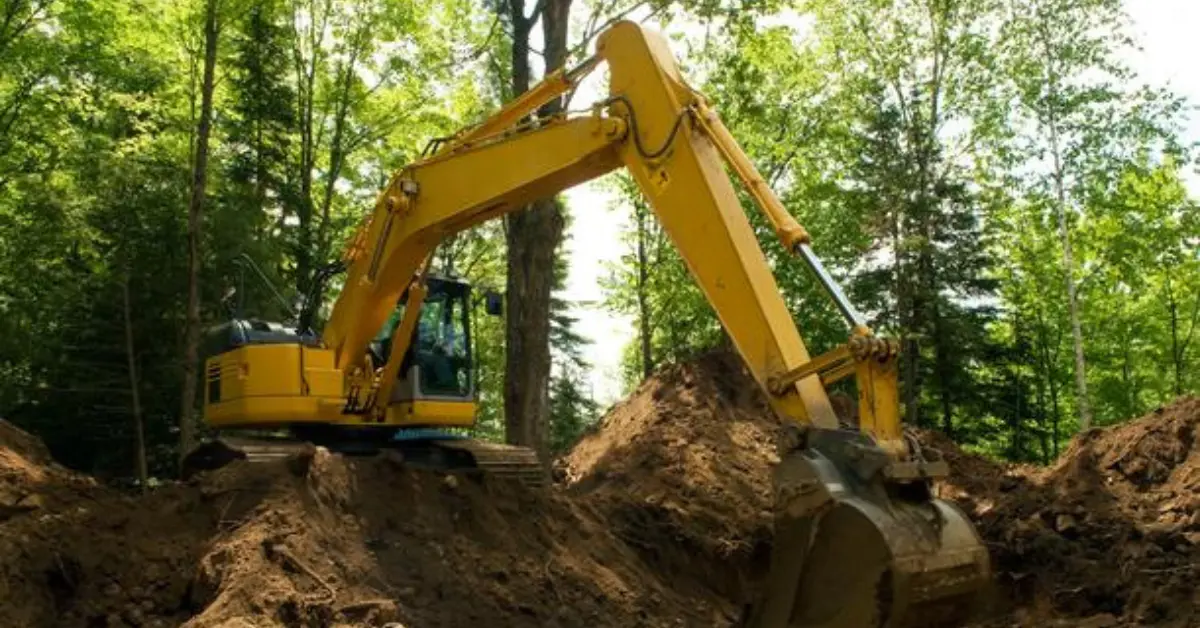
Dirt hauling contracts are the linchpin of successful construction and landscaping projects, ensuring that earthmoving operations proceed smoothly, safely, and in compliance with regulations. Whether sculpting a backyard terrace or preparing a building site, clear agreements define responsibilities. Well-drafted contracts coordinate critical logistics such as volume estimates, approved haul routes, and disposal site requirements, while embedding pricing structures and payment milestones that protect both budget and timeline. In a market driven by urban growth and infrastructure demand, robust dirt hauling contracts deliver the predictability and accountability necessary to keep earthmoving on solid ground.
Introduction to Dirt Hauling Contracts
Construction and Landscaping
Dirt hauling plays an integral role in both construction and landscaping projects, forming the backbone of site preparation and land modification. As urban landscapes expand and infrastructure projects proliferate, the demand for efficient dirt hauling services has surged. This essential service facilitates the removal of excavated materials from construction sites, allowing for the seamless progression of building activities. In landscaping, it ensures that spaces are sculpted to meet specific aesthetic and functional requirements. The preparation of a construction site involves not just the removal but also the strategic relocation of dirt to stabilize terrain or create foundational structures.
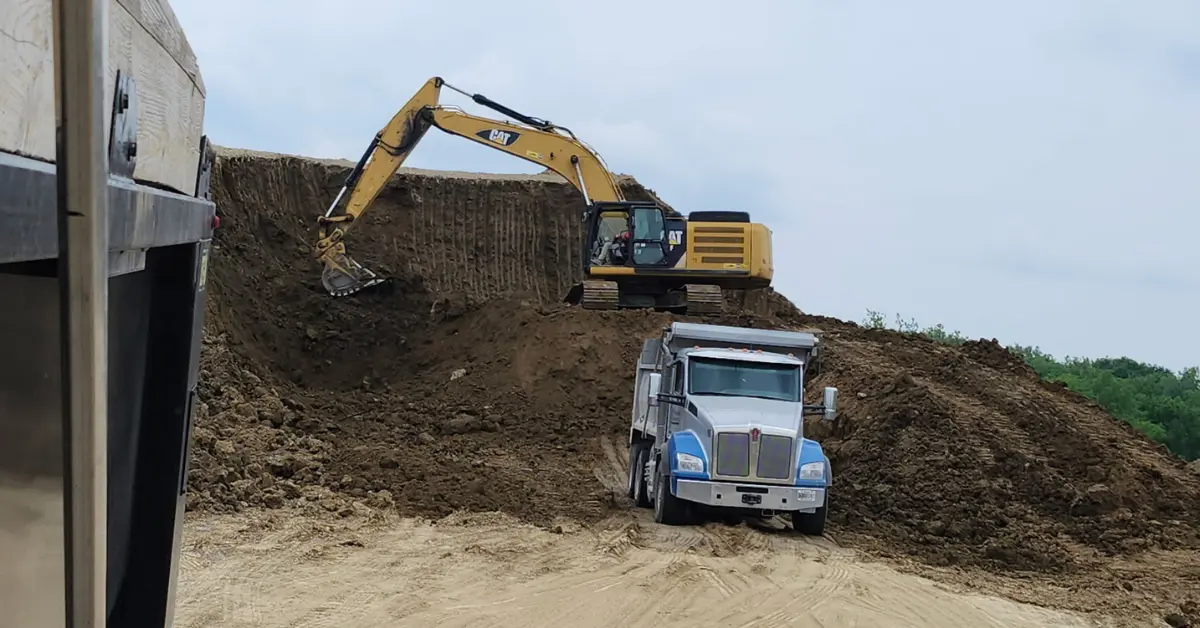
Key Stakeholders in Dirt Hauling Agreements
Each entity contributes uniquely, from initiating the project to managing the minute details of material transport and disposal, all while adhering to a complex web of regulations.
- The Project Owner serves as the foundational initiator of any dirt hauling undertaking, whether a property developer, a construction firm, or a private landowner. Their comprehensive responsibilities extend beyond merely envisioning the project, including the crucial task of securing all requisite permits, easements, and regulatory approvals. This involves meticulous adherence to zoning laws, conducting thorough environmental impact assessments, and complying with specific local ordinances governing land disturbance and the transportation of materials. Their strategic foresight in these initial stages directly influences the project’s legal standing and its ability to proceed without unforeseen delays or penalties, ultimately dictating the overall budget and timeline that shape the scope and pace of dirt hauling operations.
- The General Contractor functions as the central conductor of the entire construction or landscaping endeavor, meticulously orchestrating its various components. Their multifaceted role spans from detailed project planning and precise scheduling to stringent budget management and rigorous quality control. Regarding dirt hauling, the general contractor is uniquely responsible for seamlessly integrating the hauling schedule into the broader project timeline, ensuring that excavation and removal efforts align perfectly with subsequent construction phases.
- The Dirt Hauling Service Provider constitutes the operational backbone of the entire agreement, a specialized subcontractor entrusted with the intricate logistics of dirt removal, precise transportation, and compliant disposal. Their responsibilities include the judicious dispatching of appropriate equipment and skilled personnel, ensuring highly efficient loading and unloading processes, and strictly adhering to designated transportation routes. A critical dimension of their role involves rigorous compliance with weight limits and vehicle regulations, proactively preventing overloading that could result in substantial fines, significant road damage, or severe safety hazards.
- Environmental Consultants play a pivotal advisory and oversight role, leveraging their specialized expertise to navigate the complex web of environmental regulations, which can fluctuate significantly by jurisdiction. They meticulously conduct thorough site assessments, develop comprehensive ecological management plans, and diligently monitor dirt hauling activities to ensure unwavering compliance with stringent standards related to erosion control, effective dust suppression, vital water quality protection, and meticulous hazardous material detection. By proactively identifying and strategically mitigating potential environmental risks, they play a crucial role in preventing costly legal issues, substantial fines, and significant reputational damage for all parties involved. Their work is essential for fostering sustainable development and minimizing the ecological footprint.
- Local Government Agencies, involving diverse entities such as municipal planning departments, public works departments, and environmental protection agencies, act as crucial regulatory bodies. They meticulously establish and rigorously enforce a myriad of guidelines that directly impact dirt hauling operations. These often include detailed stipulations on permissible transportation routes, particularly in dense urban or sensitive residential areas, specifically designed to minimize traffic congestion, abate noise pollution, and mitigate wear and tear on critical public infrastructure.
Effectively managing these diverse stakeholders and their complex interdependencies is absolutely fundamental to the successful execution of dirt hauling agreements.
Understanding Legal Requirements for Hauling Soil
Federal and State Regulations
Federal and state regulations form the backbone of legal compliance in soil hauling. At the federal level, the Clean Water Act and the Resource Conservation and Recovery Act (RCRA) play pivotal roles. The Clean Water Act regulates the discharge of pollutants into U.S. waters and sets quality standards for surface waters. For dirt haulers, this means ensuring that soil transport does not contribute to water pollution. The RCRA, meanwhile, governs the disposal of hazardous waste, which can include contaminated soil.
State regulations can vary significantly. California’s stringent environmental regulations require haulers to adhere to specific air quality standards, given the state's focus on reducing emissions. Similarly, New York mandates that soil transportation must comply with the state's Department of Environmental Conservation guidelines, ensuring that any soil disposed of does not harm the ecosystem.
Necessary Permits and Documentation
Securing the right permits and documentation is a critical step in legal compliance for soil haulers. The permitting process often involves multiple layers of government oversight. Typically, a hauler must obtain permits from local, state, and federal bodies. These permits ensure that the transportation of soil is conducted safely and in an environmentally responsible manner. Permits may include transportation permits for moving soil across state lines, disposal permits for disposing of soil at specific sites, and environmental impact assessments for large-scale projects. Documentation is equally vital. Haulers should maintain meticulous records of soil origin, type, and destination. This documentation not only supports compliance but also serves as a defense in legal disputes.
Key Components of Dirt Hauling Contracts
Scope of Work and Service Expectations
The scope of work is arguably the backbone of any dirt hauling contract, setting the stage for all subsequent expectations and obligations. Not only does it delineate the precise tasks to be undertaken, but it also establishes measurable standards to evaluate performance. For instance, a comprehensive scope should specify the type and quantity of dirt to be hauled, the origin and destination points, and the timeline for completion. It must clearly define roles and responsibilities, ensuring there is no ambiguity about who is accountable for each part of the process. Service expectations should outline the quality standards for the hauling process. This includes stipulating the condition of the equipment to be used and the qualifications of personnel.
Pricing and Payment Terms
These terms must be meticulously crafted to ensure clarity and fairness for all parties involved. The contract should detail the pricing structure, whether it's a flat rate, hourly rate, or based on the volume of dirt moved. Transparent pricing models help prevent misunderstandings and disputes over costs. Payment terms should specify when payments are due, conditions for payment release, and any penalties for late payments. For instance, a contract might require a deposit before work begins, with subsequent payments tied to project milestones. This approach not only secures cash flow for the hauler but also aligns the payment schedule with project progress. Furthermore, contracts can include clauses for cost escalation or fuel surcharges, especially in volatile market conditions.
Contract Duration and Termination Clauses
The duration of a dirt hauling contract is another critical component that dictates the operational timeline and project continuity. A well-defined contract period should align with the project's overall schedule and scope of work. It provides a clear timeframe within which the service is expected to be completed, reducing the likelihood of delays. Termination clauses, on the other hand, provide a safety net for both parties, outlining the conditions under which the contract can be terminated prematurely. These clauses should address scenarios such as breach of contract, non-performance, or unforeseen circumstances like natural disasters. For example, a legal commentary on contract law emphasized the importance of including force majeure clauses to protect parties from liabilities during uncontrollable events.
Termination clauses should also specify the notice period required before termination, allowing for a structured and amicable resolution of the matter. This ensures that both parties have adequate time to address grievances or settle any outstanding obligations. Including a well-thought-out termination provision not only mitigates risk but also fosters a collaborative relationship between the parties to the contract.
Standard Contract Terms
Regulatory bodies such as the Texas Department of Transportation (TxDOT) and similar organizations in other states provide model terms that are designed to protect the interests of all parties involved and ensure compliance with industry best practices. These standard clauses typically address core aspects of contract performance, including clear definitions of the scope of work, performance expectations, payment schedules, dispute resolution mechanisms, and termination conditions. By referencing or directly including these recommended provisions, project owners and contractors can avoid common pitfalls such as vague language, ambiguous responsibilities, or unenforceable obligations. TxDOT’s standard terms and conditions often require that contracts specify measurable performance standards, outline the consequences for non-compliance, and establish formal channels for resolving disputes. Including such clauses in a dirt hauling contract ensures that both the service provider and the client have a shared understanding of what constitutes satisfactory performance and how issues will be addressed if they arise. Payment schedules recommended by authorities typically mandate transparency regarding when and how payments will be made, reducing the likelihood of disputes over compensation. Similarly, recommended termination clauses provide a clear framework for ending the contract under specified circumstances, such as breach of contract or unforeseen events, which protects both parties from unnecessary risk.
Adopting these standardized terms not only enhances legal clarity but also streamlines negotiations. Parties can rely on a foundation of widely accepted practices, which helps build trust and reduces the time spent haggling over basic provisions. Integrating authoritative standard terms and conditions into dirt hauling contracts promotes accountability, minimizes misunderstandings, and fosters a more collaborative working relationship. For those new to contract drafting, consulting the latest guidelines from state transportation departments or industry associations is a practical way to ensure that agreements are robust, compliant, and equitable.
Insurance Requirements
It is vital to specify the types and amounts of insurance coverage required of the hauling service provider. At a minimum, contracts should require general liability insurance, which covers bodily injury and property damage to third parties resulting from hauling activities. Commercial auto liability insurance is equally important, as it protects against damages caused by vehicles used in transporting soil. In addition, cargo insurance should be mandated to cover loss, theft, or damage to the materials being hauled, ensuring that both the project owner and the hauler are protected if the soil or debris is compromised during transit. Physical damage insurance for vehicles—covering collision, comprehensive, and specified perils—should also be considered, particularly for projects involving high-value or specialized equipment.
Beyond specifying the types of coverage, contracts must clearly state the minimum policy limits required. These limits should reflect the scale and risk profile of the project; for example, larger or more hazardous jobs may warrant higher liability limits than the statutory minimums. It is prudent to consult with an insurance professional or a legal advisor to determine the appropriate coverage thresholds based on the project's size, location, and complexity. Contracts should also require that reputable carriers issue the hauling company’s insurance policies and remain in force for the duration of the project.
Negotiating insurance requirements can sometimes be a point of contention, especially if the hauler’s existing policies do not meet the project’s standards. In these cases, it is important to balance risk management with market realities—while robust coverage is non-negotiable for protecting all parties, excessive requirements may limit the pool of qualified bidders or increase project costs. Open communication and a willingness to seek mutually acceptable solutions, such as adjusting coverage limits or sharing the cost of additional premiums, can help ensure that all stakeholders are adequately protected without jeopardizing project feasibility.
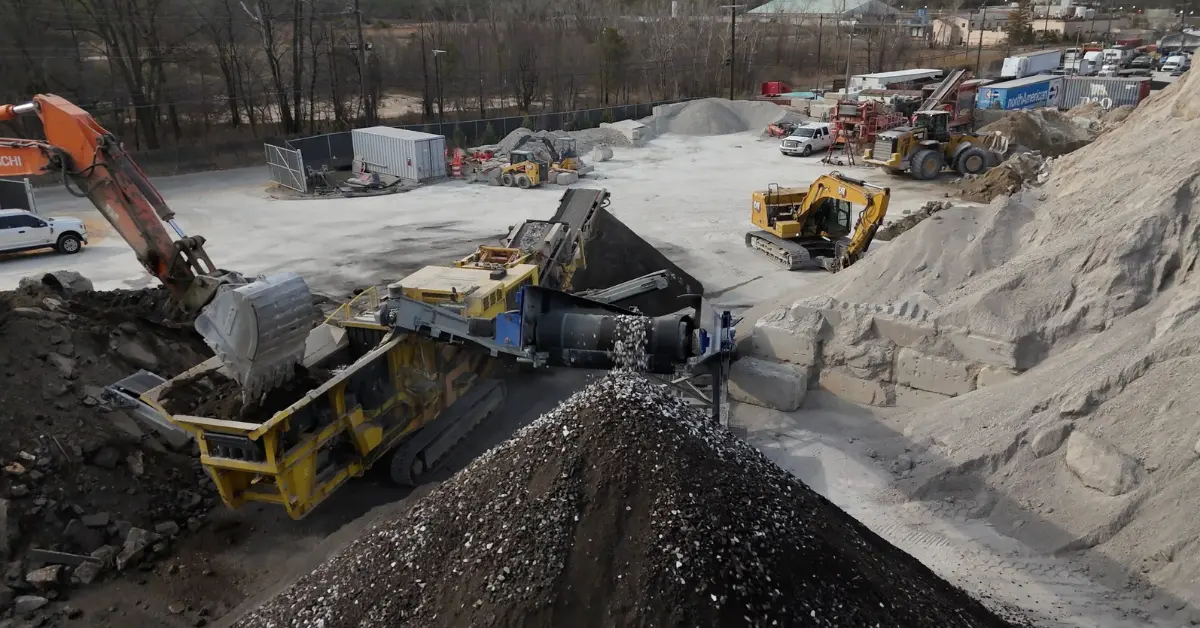
Hiring a Dirt Hauling Service
Factors to Consider When You Hire Haulers
Selecting the right service is a pivotal decision that can significantly impact efficiency, budget, and overall success. A careful vetting process, focusing on key operational aspects, will mitigate risks and ensure that your project proceeds smoothly
- Equipment Suitability and Maintenance: The effectiveness of any dirt hauling operation hinges on the quality and condition of its equipment. Ensure the service provider possesses a diverse fleet of well-maintained machinery, including appropriately sized dump trucks, efficient loaders, and robust excavators, all suited to the specific volume and type of material your project entails. Regular inspections and preventative maintenance are crucial in preventing breakdowns, which can lead to costly delays and compromise safety. Prioritizing a hauler with modern, well-maintained equipment minimizes operational risks. It maximizes efficiency, ensuring that earth movement proceeds without interruption.
- Project Timeline and Responsiveness: Adhering to project deadlines is paramount in construction and landscaping, making a hauler's punctuality and communication critical. Confirm their capacity to meet your project's specific timeline without compromising service quality or safety. Delays in dirt removal can create a detrimental ripple effect, pushing back subsequent construction phases and incurring additional costs.
- Environmental Policies and Compliance: In today's environmentally conscious landscape, the responsible handling of soil disposal rules is non-negotiable. A reputable dirt hauling service should operate with clear environmental policies, including proper disposal methods for various soil types, particularly contaminated materials. They should also prioritize recycling viable soil and aggregate to minimize landfill waste and promote sustainable practices. Crucially, verify their strict adherence to all local, regional, and national environmental regulations, including dust control, erosion prevention, and contamination avoidance. Partnering with an environmentally responsible hauler protects both the environment and your project from potential regulatory penalties and reputational damage.
By meticulously evaluating these critical factors, you can confidently select a dirt hauling service that aligns with your project's demands for efficiency, safety, and environmental responsibility, ultimately contributing to a successful and stress-free undertaking.
Understanding the Costs Involved in Dirt Removal
Cost is a significant factor in any dirt hauling contract, and understanding the various components involved can help you budget more effectively. Typically, the costs are influenced by the volume of dirt to be removed, the distance to the disposal site, and the time required for the job. Larger projects with more significant amounts of soil will naturally incur higher expenses due to the need for more trips or larger trucks. Some service providers may offer flat-rate pricing, while others charge based on the tonnage of dirt removed. It's crucial to obtain detailed quotes from multiple haulers to compare their pricing structures. Be wary of quotes that seem unusually low, as they may not include hidden fees such as fuel surcharges or disposal costs.
Negotiating the terms of payment is also essential. Some companies may require a deposit upfront, with the balance due upon completion of the project. Others might offer installment payment plans. Ensuring clarity in payment terms can prevent disputes and ensure a smooth transaction. Be aware of potential additional costs. These can include fees for permits if required by local authorities, charges for special handling of contaminated soil, or penalties for project delays.
Certification Standards
Many projects require haulers to hold specific certifications that demonstrate their commitment to professional standards, diversity, and regulatory compliance. Among the most common certifications are Disadvantaged Business Enterprises (DBE), Minority Business Enterprises (MBE), and Small Business Enterprises (SBE). A DBE certification is awarded to companies that are at least 51% owned and operated by individuals who are socially and economically disadvantaged, helping to promote equal opportunity in public contracting. Similarly, MBE certification recognizes businesses owned and managed by minority group members. At the same time, SBE status is granted to companies meeting certain size and revenue criteria, encouraging the participation of smaller firms in large-scale projects.
In addition to these, some jurisdictions or project owners may require or prefer contractors with other industry-recognized credentials, such as safety training certifications, environmental stewardship certifications, or specific endorsements for operating commercial vehicles. Certification requirements can vary based on project type, funding source, and local regulations. Federal or state-funded construction projects often mandate a certain percentage of contract value be allocated to certified DBE or MBE firms, incentivizing general contractors to partner with qualified hauling providers.
Documenting these certifications in the contract is essential, as it not only fulfills legal or contractual obligations but also enhances the credibility and competitiveness of the hauler. Certified contractors are often perceived as more reliable, better trained, and more likely to adhere to best practices in safety and environmental management. For project owners and general contractors, working with certified firms can improve eligibility for public contracts and demonstrate a commitment to diversity and inclusion within the industry.
Bulk Soil Transport and Its Challenges
Logistics of Bulk Soil Transport
The logistics of transporting bulk soil involve a meticulous orchestration of multiple factors, including volume calculations, route planning, and timing. A significant challenge is the sheer volume of soil that needs to be moved, often measured in thousands of cubic yards. Precision in volume calculation is crucial to prevent overloading vehicles, which can result in fines and increased wear and tear on equipment.
Route planning is another logistical component that requires careful consideration. Routes must be selected not only for efficiency but also to minimize impact on traffic and local communities. For instance, in urban areas, transport vehicles may be restricted to certain roads to avoid congestion and damage to infrastructure. Timing is crucial, as soil transport often needs to coincide with specific phases of construction projects to ensure that the site remains on schedule. The coordination required extends beyond mere transportation. It involves aligning with project timelines, adhering to safety standards, and ensuring compliance with local regulations. A failure in any of these areas can lead to costly delays and potential legal issues.
Equipment and Technology in Soil Transport
The advancement of equipment and technology has significantly transformed soil transport. Modern machinery, such as articulated dump trucking and conveyor systems, has increased the efficiency and safety of soil movement. These machines are designed to handle significant loads over various terrains, reducing the need for manual labor and minimizing the trucking risk clauses.
Technological innovations, such as GPS tracking and telematics, provide real-time data on vehicle location, speed, and load status. This information is invaluable for optimizing routes, reducing fuel consumption, and ensuring timely deliveries. It also enhances accountability and transparency, as stakeholders can track progress and address issues promptly. Automation is beginning to play a role in soil transport. Automated vehicles and drones are being tested for transporting soil in controlled environments. Although not yet mainstream, these technologies promise to enhance efficiency further and reduce human error.
Best Practices in Drafting Haul Contracts
Tips for Clear and Concise Contract Language
The first step in creating a robust haul contract is ensuring that the language used is both clear and concise. Ambiguities can lead to disputes and potential litigation, which can be costly and time-consuming. To avoid these pitfalls, it's essential to use plain language and precise terms that leave no room for misinterpretation. For instance, defining specific terms such as "load," "haul," and "delivery" can prevent misunderstandings about the scope and responsibilities of each party involved.
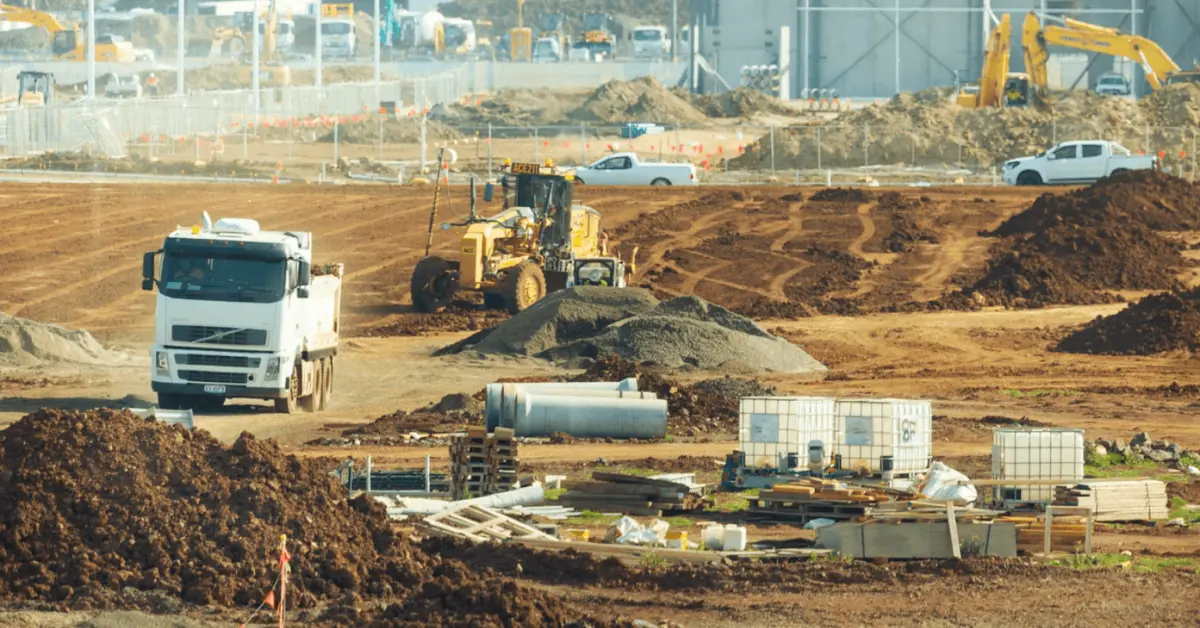
Another key practice is to structure the contract in a logical manner. Start with the scope of work, followed by specific deliverables, timelines, and payment terms. Each section should flow naturally into the next, providing a coherent narrative that is easy to follow. It is also advisable to use bullet points or numbered lists where appropriate to enhance readability. For example, listing out the responsibilities of the hauling company can provide clarity and prevent future disputes. Clarity in contract language also extends to the inclusion of force majeure clauses, which outline circumstances under which contractual obligations may be suspended due to unforeseen events. This is particularly relevant in dirt hauling, where weather conditions can significantly impact project timelines.
Despite the best intentions, certain common pitfalls can undermine the effectiveness of haul contracts. One frequent error is the use of overly complex legal jargon. While some legal terminology is necessary, excessive complexity can obscure the contract's meaning and make it difficult for parties to understand their obligations. Another pitfall is the failure to address contingencies. Contracts should anticipate potential issues like equipment breakdowns, labor strikes, or regulatory changes, providing clear procedures for how these situations will be handled. This forward-thinking approach can prevent disputes and maintain project momentum.
Leveraging Legal Expertise in Contract Drafting
Engaging legal expertise in the contract drafting process is invaluable. Lawyers specializing in construction or transportation law can provide insights that enhance the contract's robustness and enforceability. They can help identify potential legal risks and suggest appropriate clauses to mitigate them. Legal experts can also assist in crafting indemnification clauses, which specify who is responsible for damages or losses incurred during the hauling process. These clauses are crucial in protecting parties from liability and ensuring that risks are appropriately allocated.
The future of soil transport and haul services is poised for significant evolution, driven by advancements in both technology and policy. The adoption of autonomous hauling vehicles is anticipated to revolutionize the industry, offering enhanced safety and efficiency. These vehicles can operate continuously without fatigue, reducing the risk of accidents and streamlining operations. Although still in the early stages, pilot programs in industries such as mining are already demonstrating the potential of autonomous technology to reduce labor costs and increase productivity. The dirt hauling industry is on the cusp of transformation, driven by technological advancements and evolving regulatory landscapes. Companies that embrace these changes and prioritize risk management will be well-positioned to thrive in the future market.

.svg)




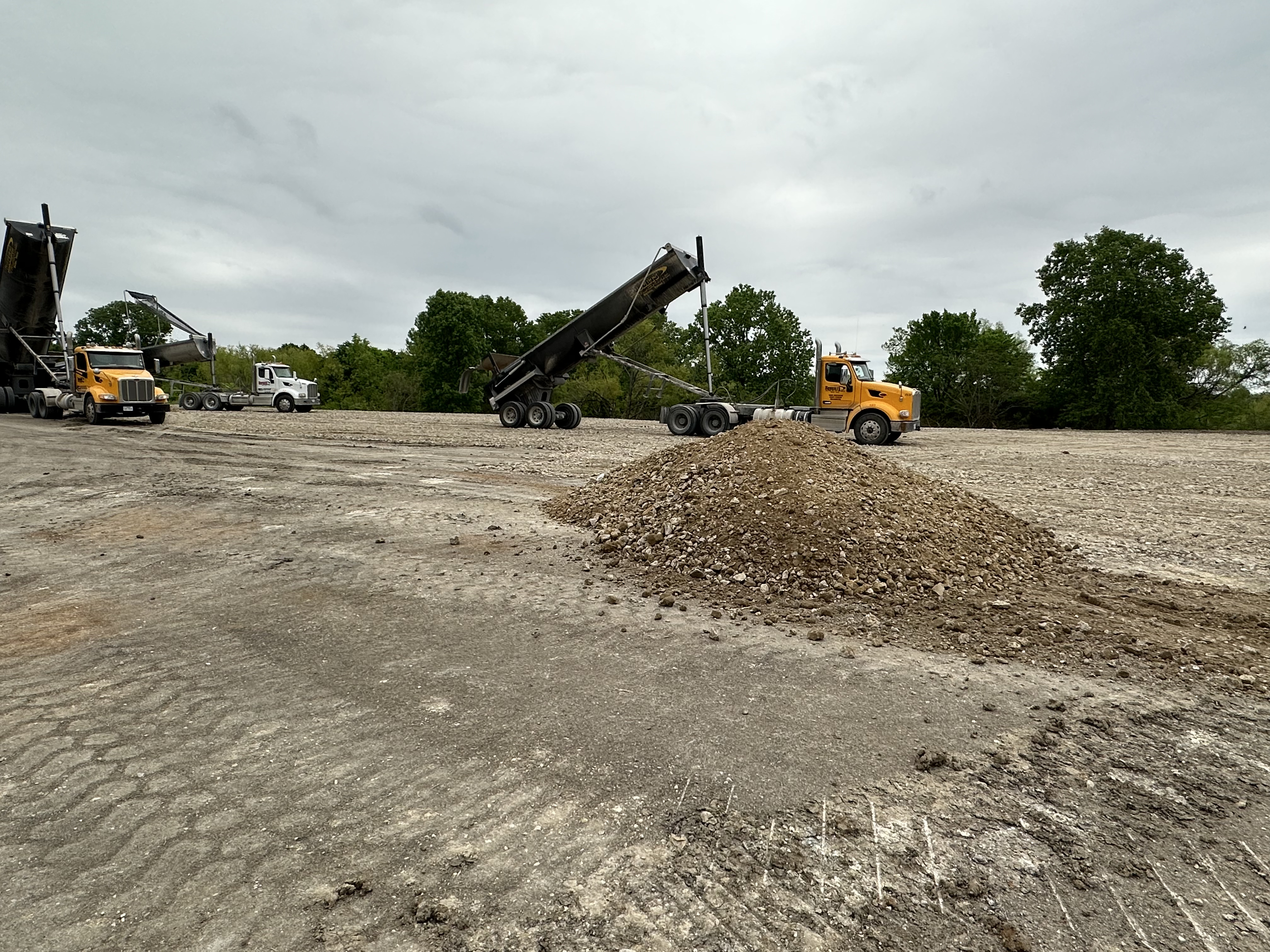

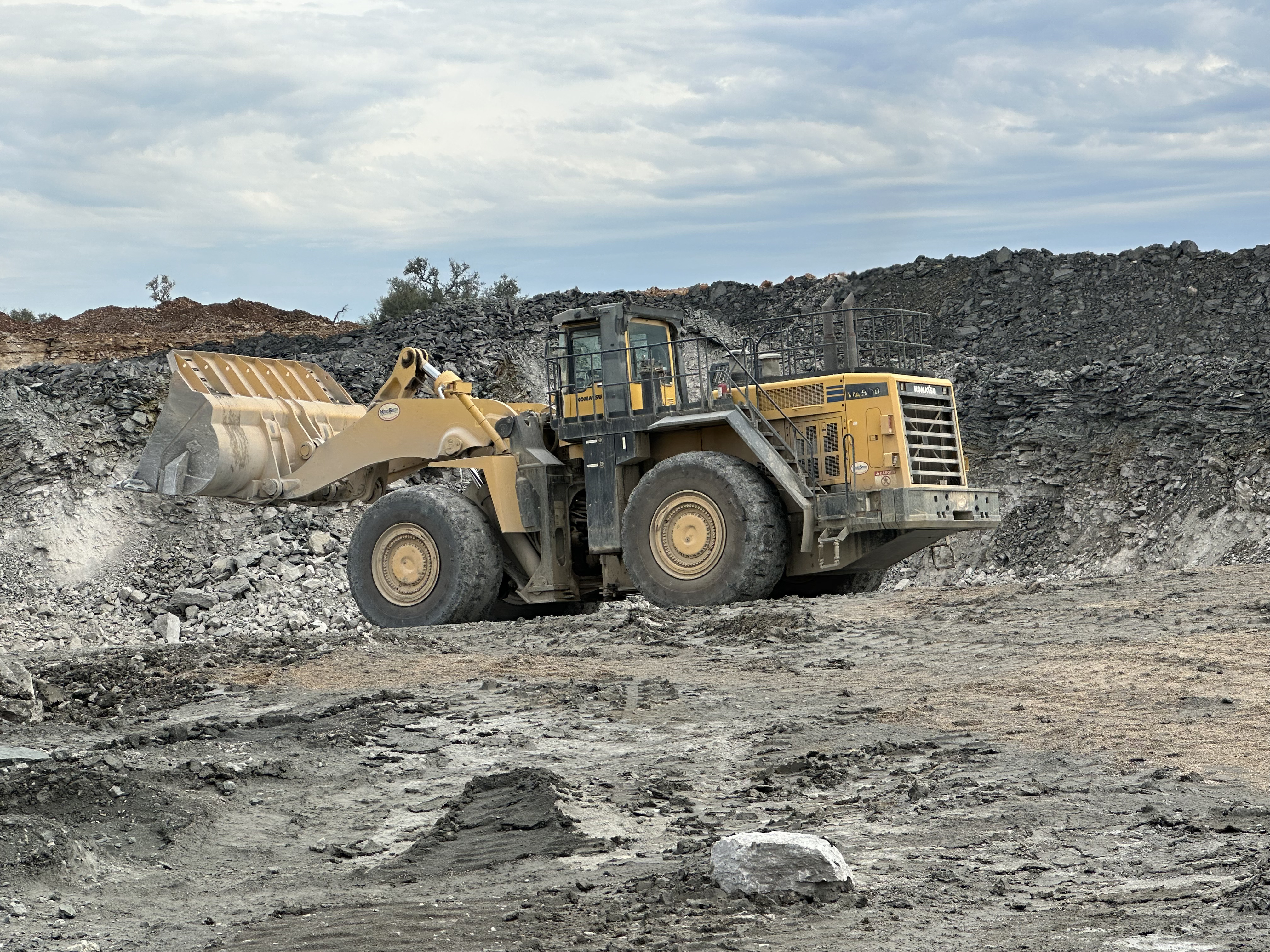
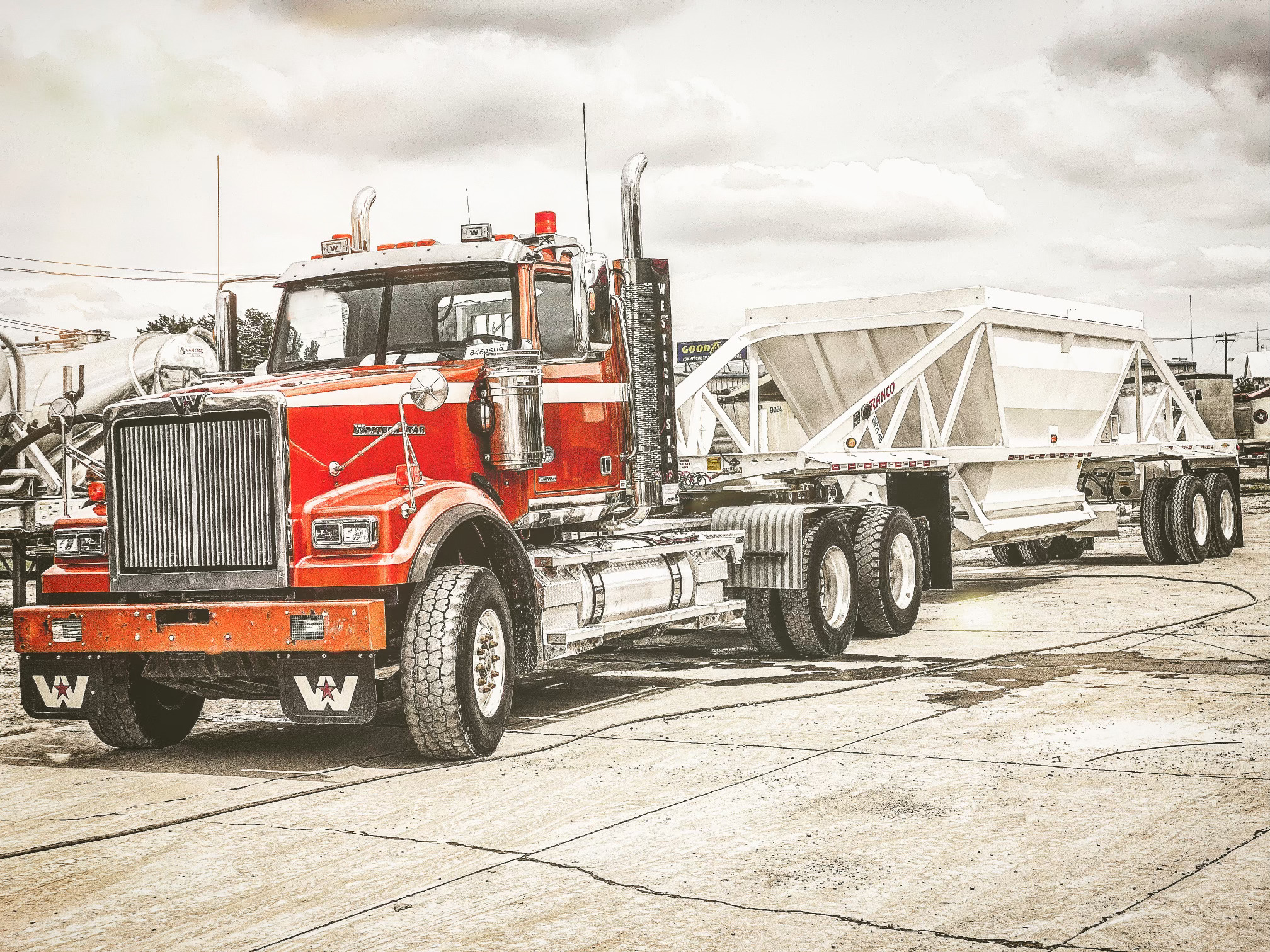




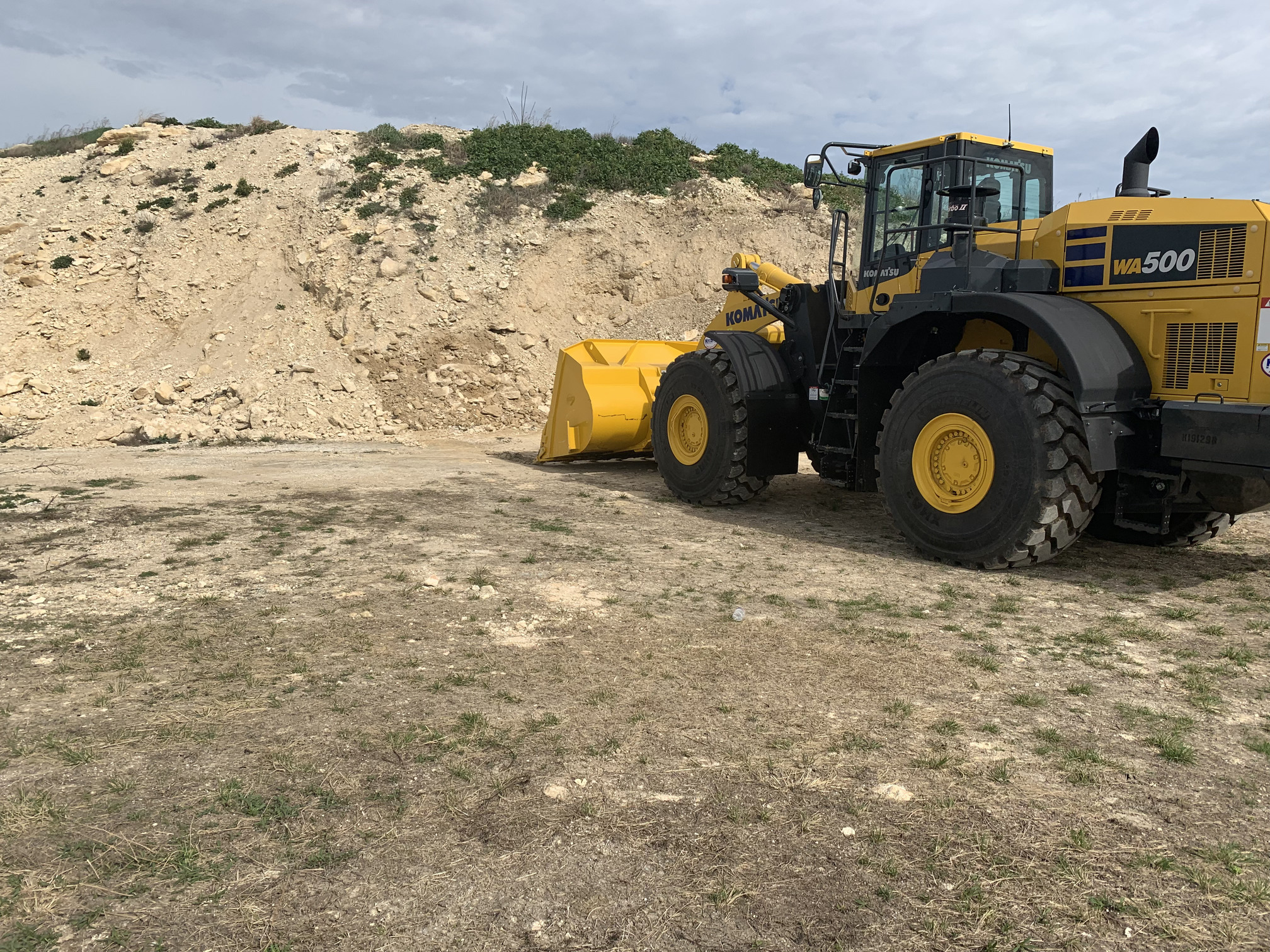
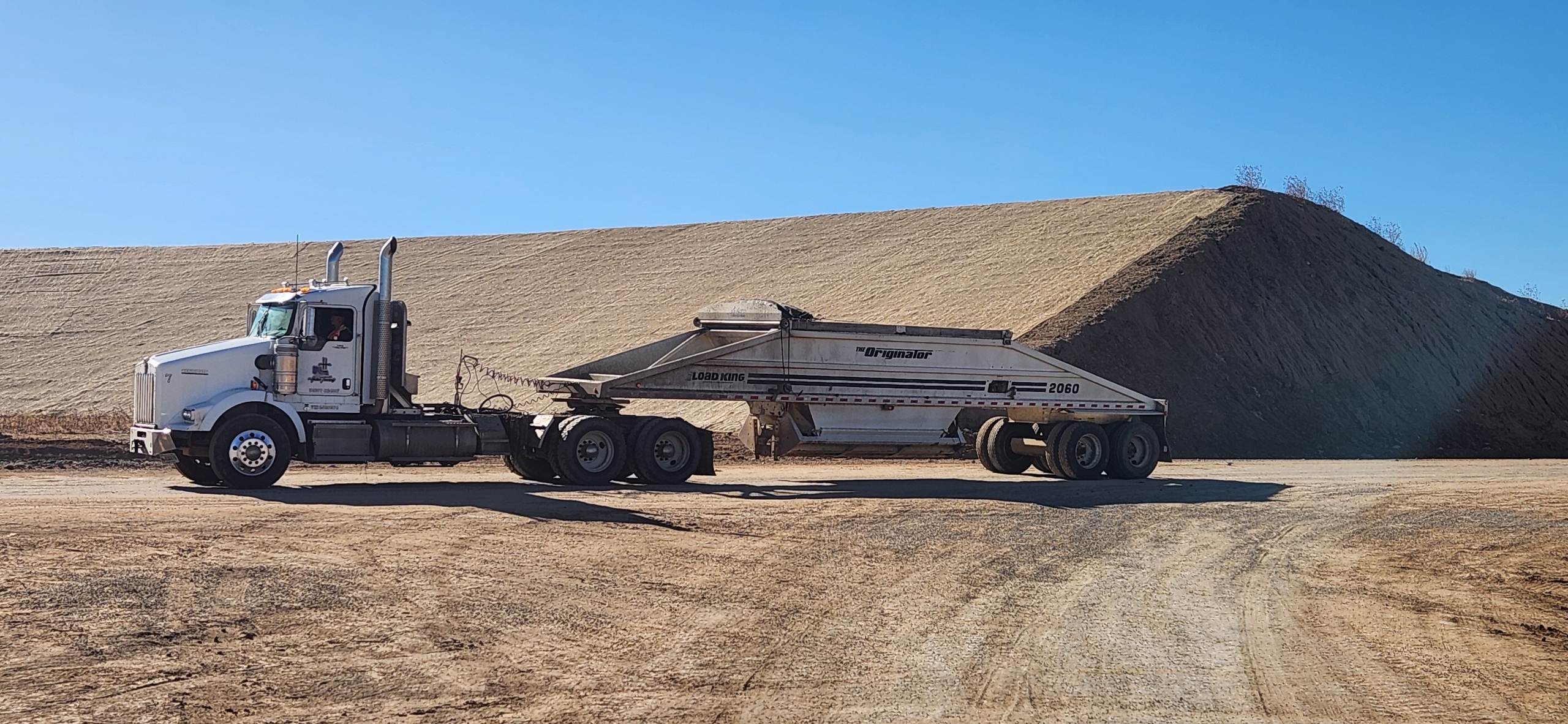
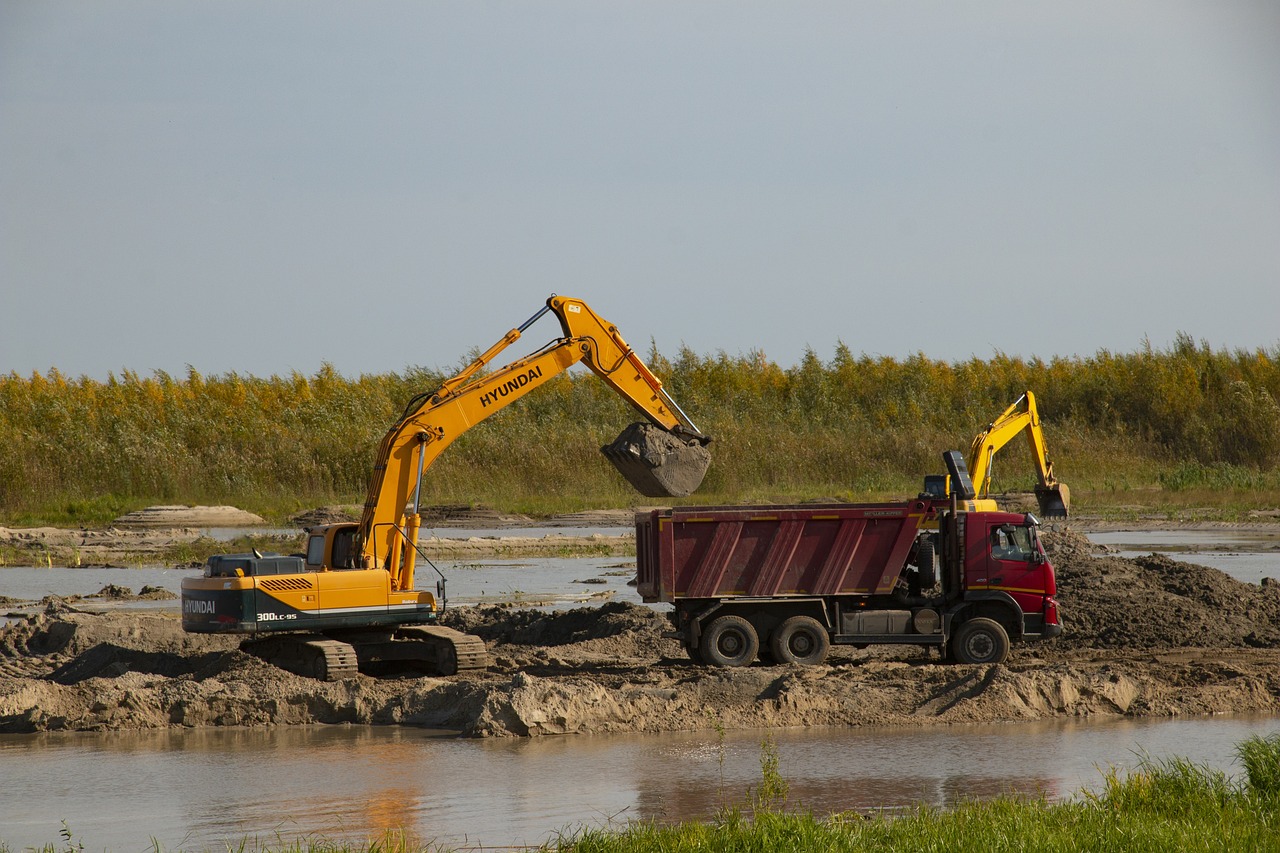

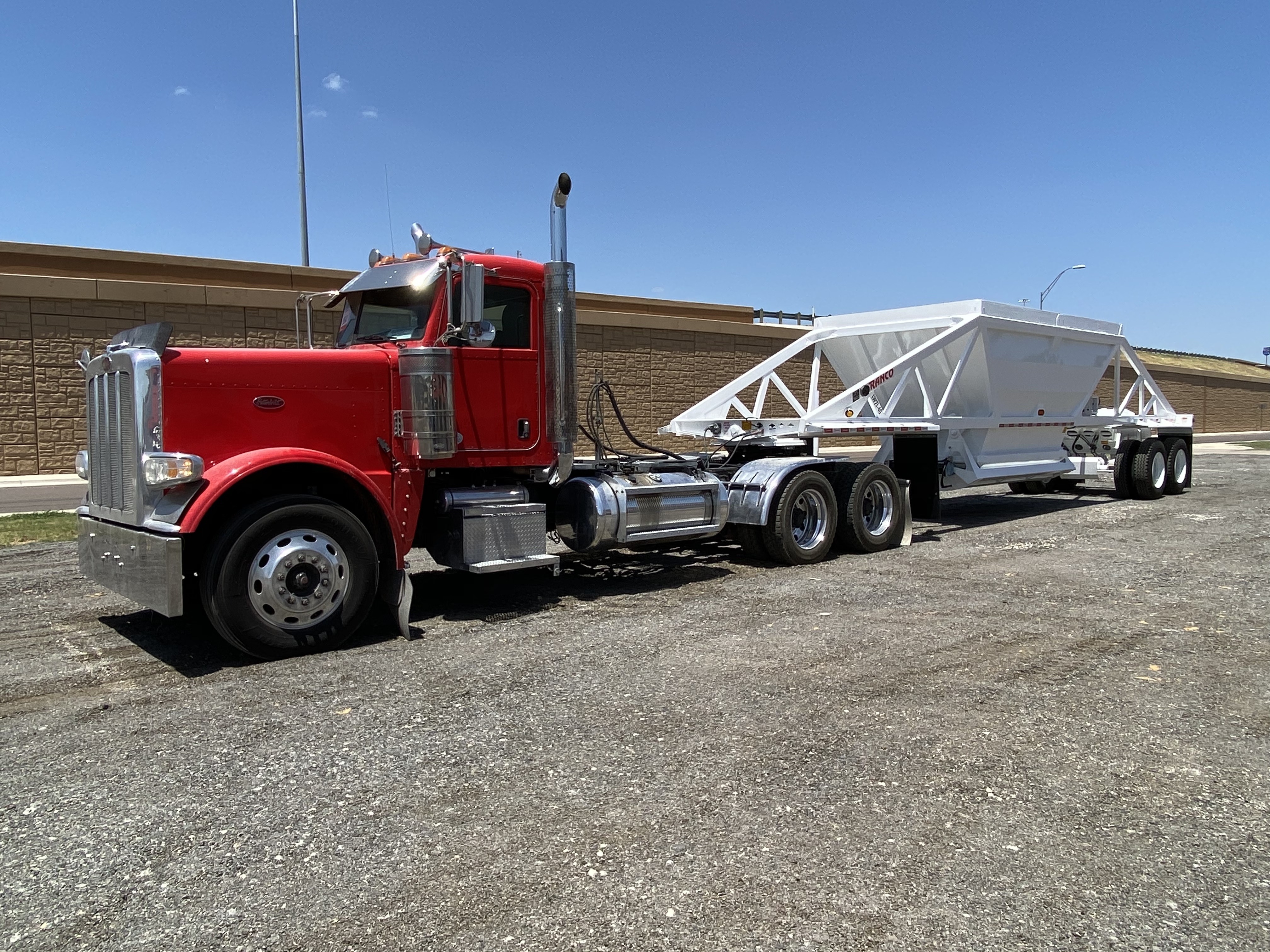
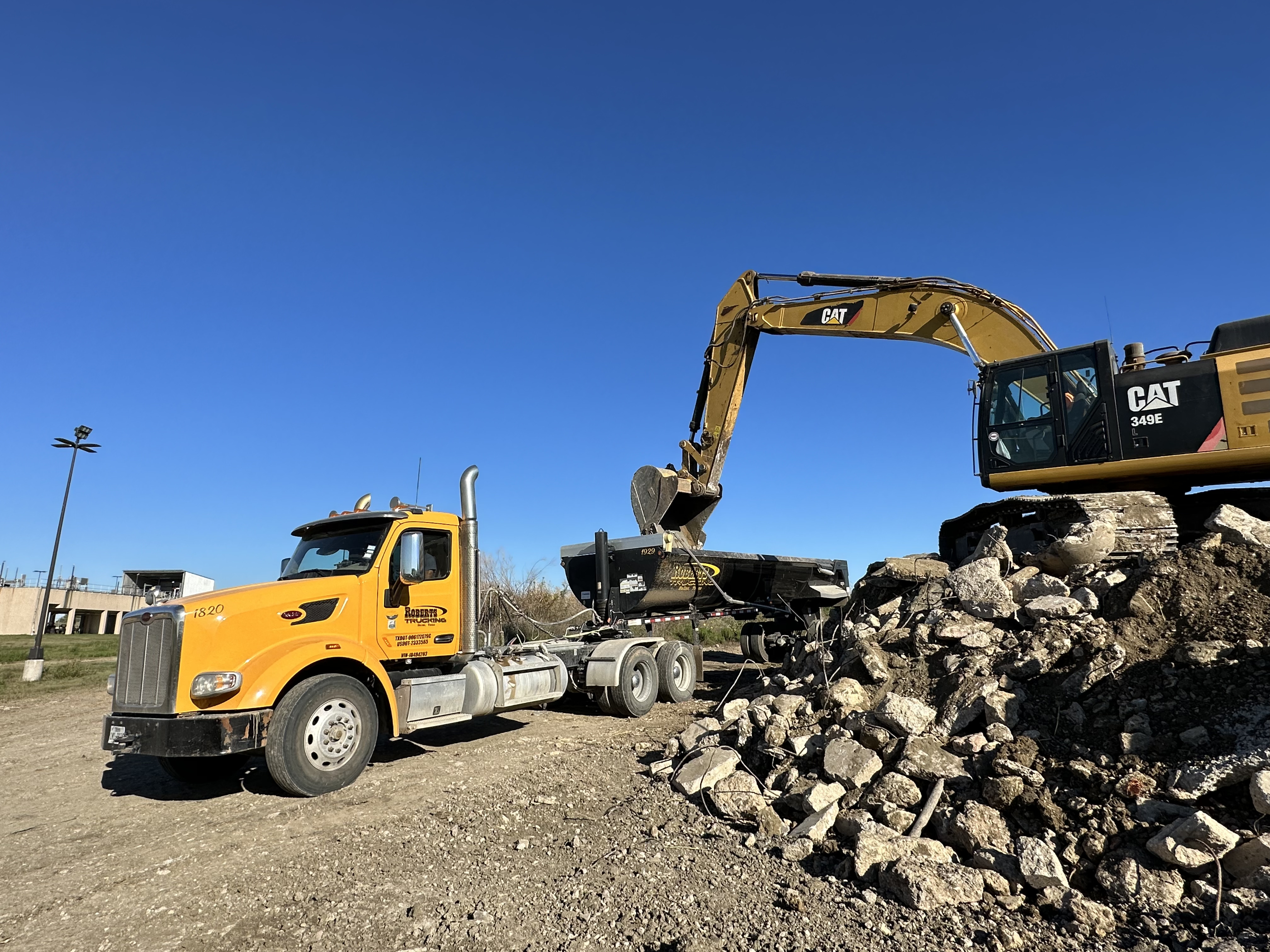
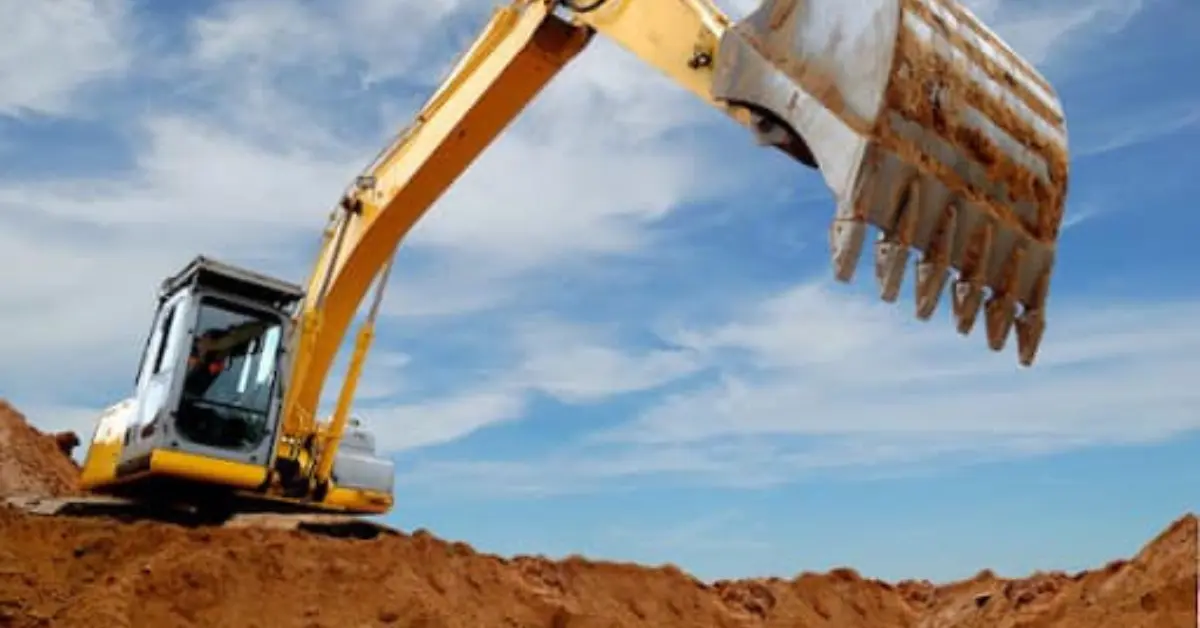
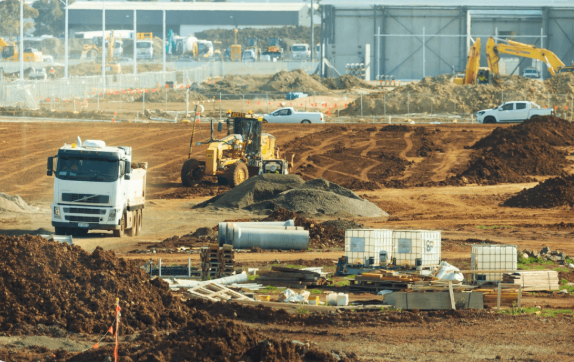
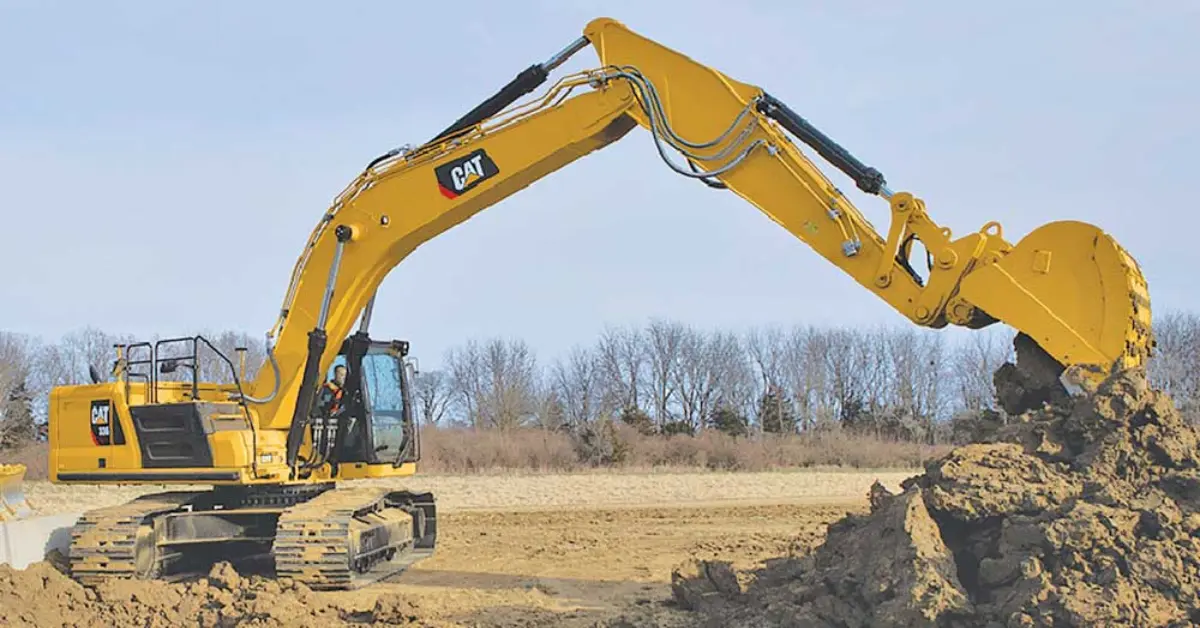
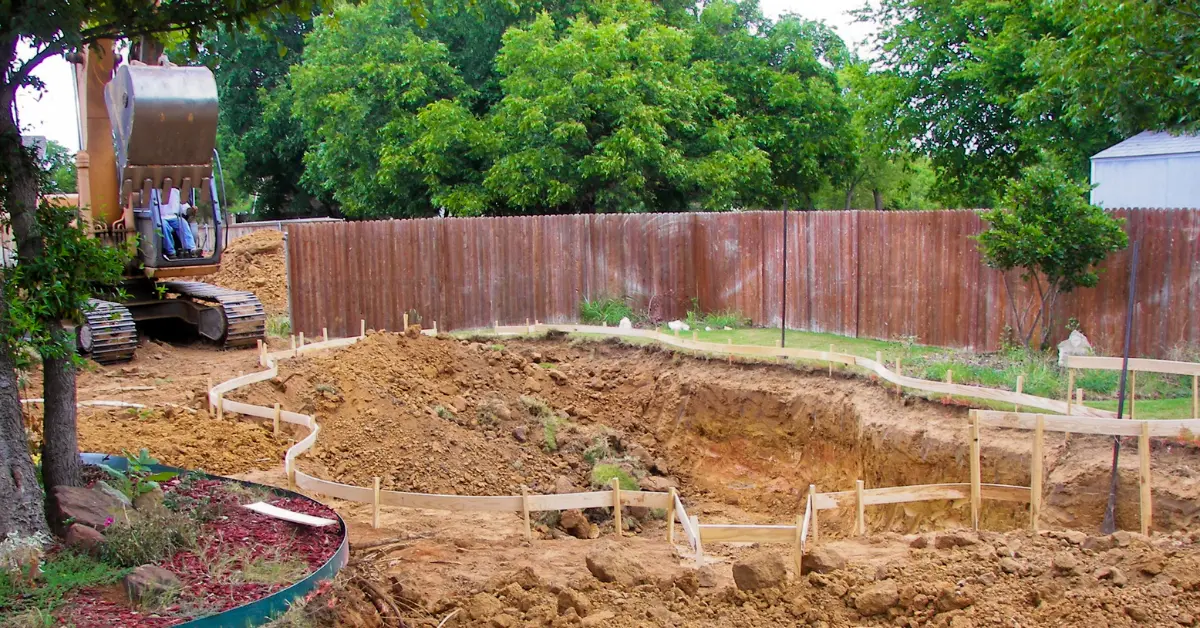
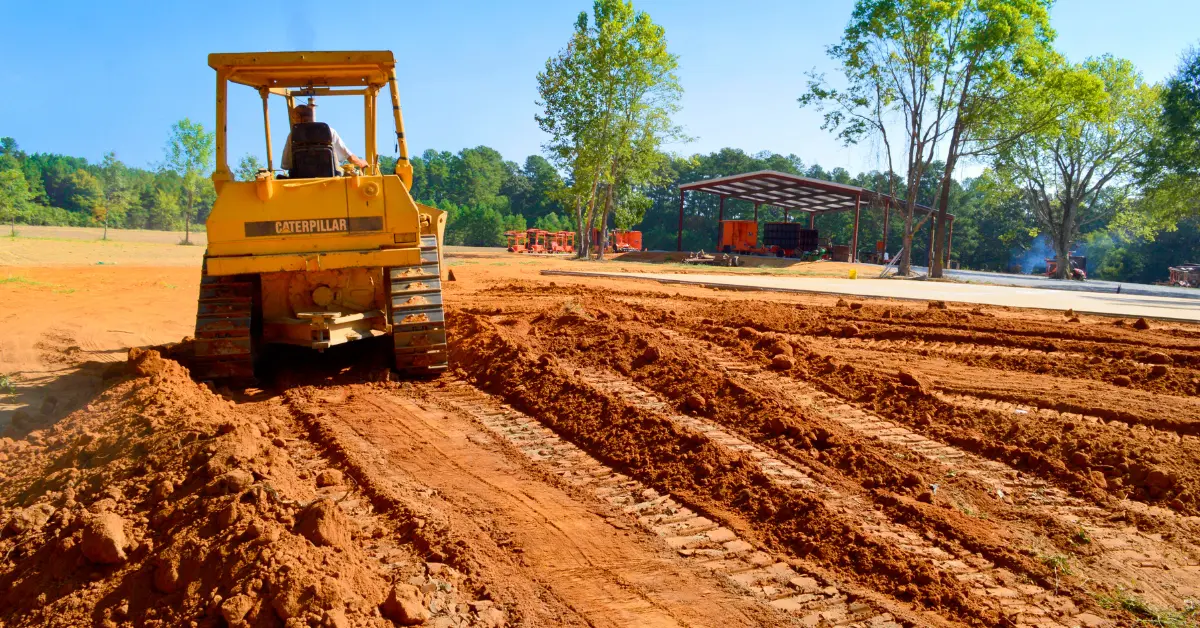
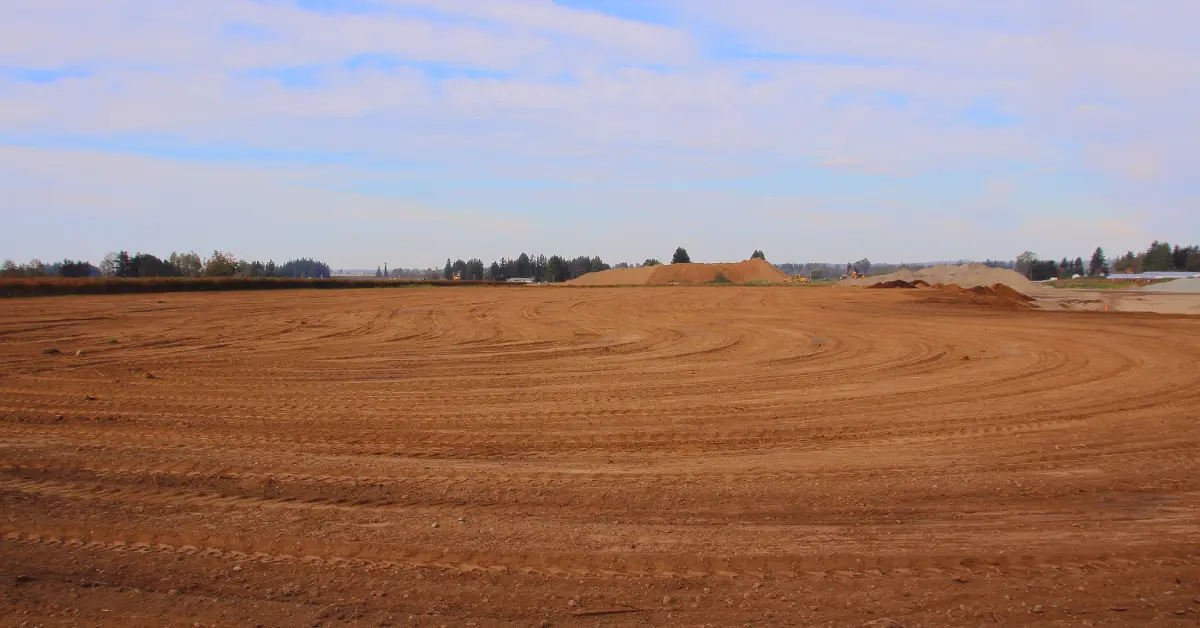



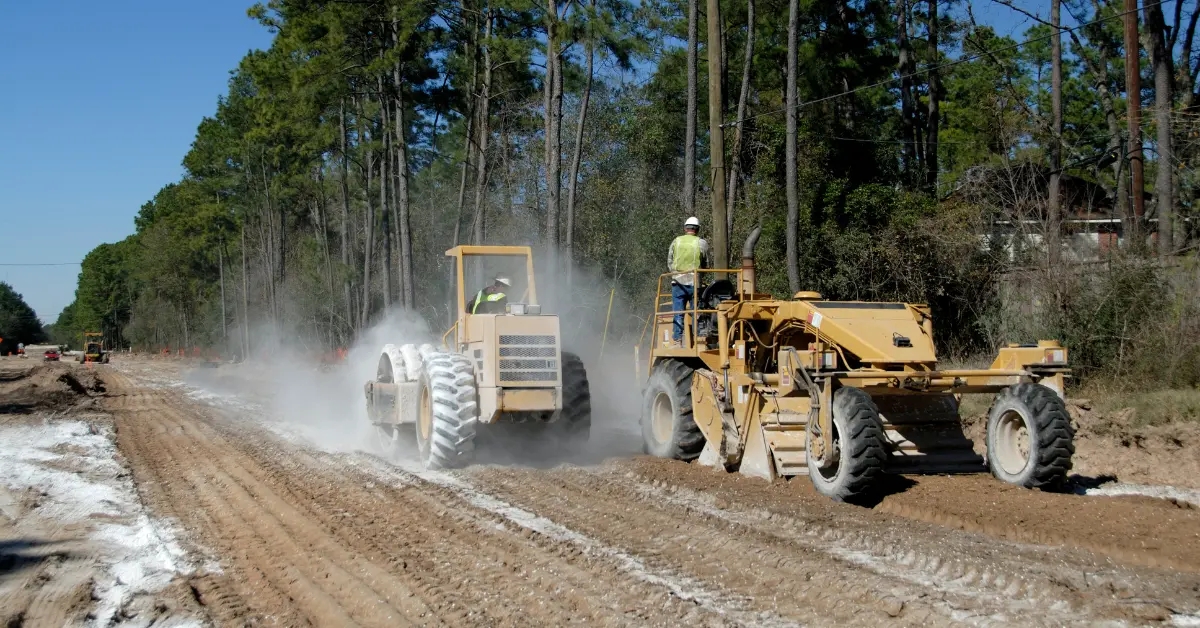




.jpg)













































